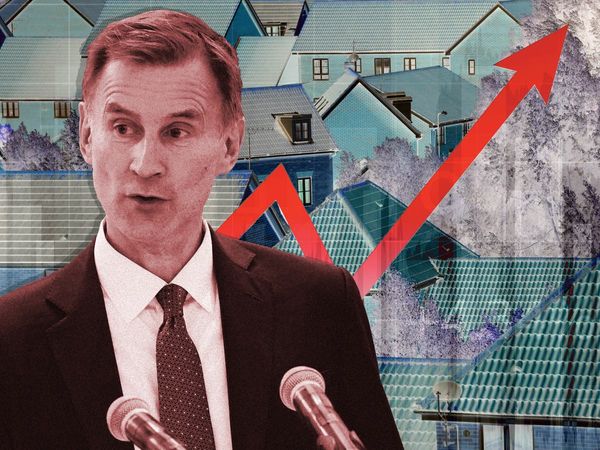
Sky-high interest rates are forcing more UK households into debt, the UK’s largest debt support charity has stated.
Citizens Advice revealed that, in the space of a year, it had seen the number of people it was supporting who could no longer afford the property they were living in nearly double.
Seeing up to 40,000 people each month, it has also been left unable to help nearly half of those contacting the charity for financial advice as many had already reduced their spending to the absolute essentials.
Citizens Advice said the number of people it was supporting who could no longer afford the property they were living in has nearly doubled over the last year— (PA)
Approximately half of those it helped were deemed to be in “negative budget” following an assessment with a charity debt adviser, reporting that mortgage holders had a negative budget of around £120 per month.
The Bank of England base rate is currently at 5 per cent, but estimations have suggested that the rate could go as high as 7 per cent next year in an effort to tackle inflation.
1.7 million households set to remortgage in 2024 are anticipated to see their annual repayments rise by over £3,000 on average, with the Institute for Fiscal Studies (IFS) reporting that higher mortgage payments would only “add the squeeze” for those already struggling with the cost of living.
“What we’ve seen is that last year’s cost of living crisis has become a debt crisis, which is dragging a lot of people who come to us under water,” Morgan Wild, head of policy at the charity, told The Sunday Times. “It is simply not possible for us to devise a budget for people in negative budgets where their money coming in matches the most basic of outgoings.”
“People are trying to cut back on every other bill so they can keep their home. But that risks putting them further in debt,” Mr Wild added. “What worries us is that as we move to winter and people have to find more to pay for energy the situation will get even worse.”
Meanwhile, economic thinktank Resolution Foundation has estimated that, paired with rising mortgage rates and falling house prices, total household wealth has fallen to 650 per cent of national income in early 2023. This represents a cash fall of £2.1 trillion between 2022 and 2023, the largest fall as a share of gross domestic product (GDP) since World War II.
As the foundation anticipates that Bank of England policy rates will remain at 5.5 per cent in mid-2025, it warns that wealth could fall further to approximately 550 per cent of GDP, ending a forty-year “wealth boom” that it notes has been a “key driver of intergenerational inequality.”
In June, one YouGov poll of more than 6,000 people found that almost two million Britons skip meals for a whole day three times a month on account of the rising cost of living.
It also found that 9.6 million people live in households classified as being in “serious financial difficulties”, with 61 per cent of this cohort stating that they could not always afford to heat their home in the previous six months.










